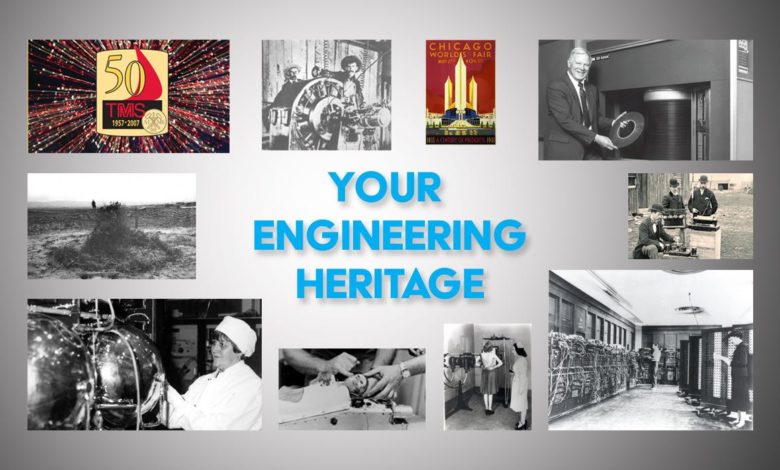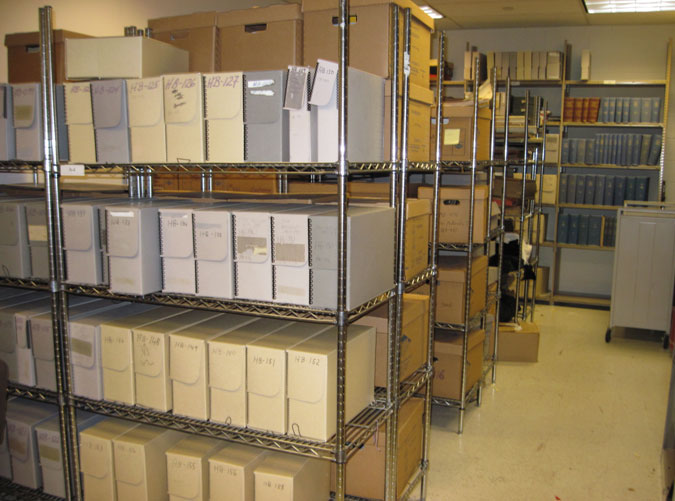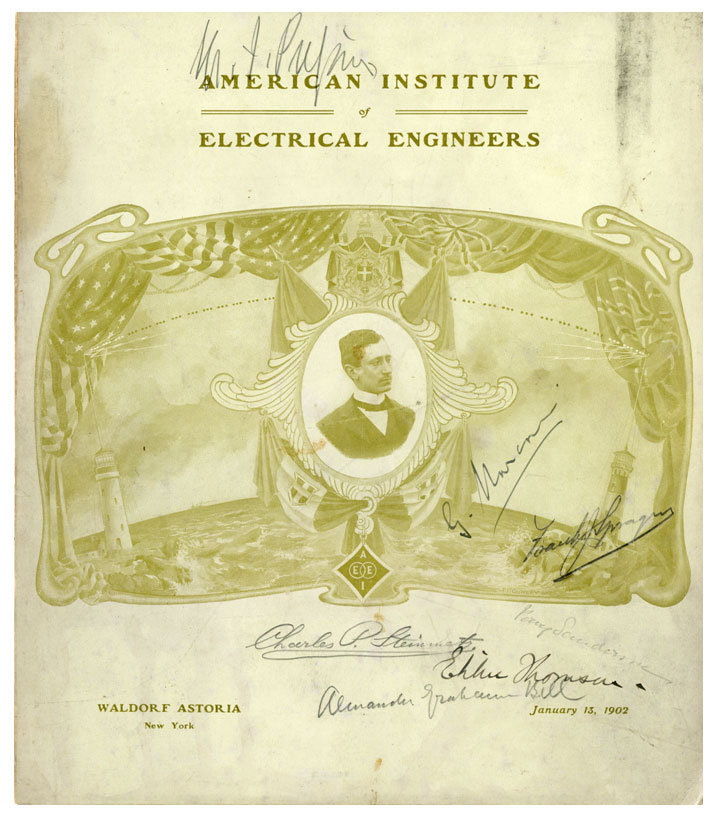
The IEEE History Center has now been in existence for thirty years. And while programs and initiatives have come and gone over the decades, at least one, perhaps not so well known program, the IEEE Archives, has been part of the Center’s operations since the beginning.
The IEEE History Center was established in 1980 as the IEEE Center for the History of Electrical Engineering as part of the preparation for the IEEE’s 1984 Centennial. One of its first tasks was to identify and gather institutional records of the IEEE and its predecessors AIEE and IRE. These documents, photos and artifacts, plus material generated during the centennial itself form the core of the IEEE Archives collection. And since that time, the focus of the IEEE Archives has continued to be collecting IEEE’s institutional records, especially the records of the overall IEEE. There is a secondary focus on items useful for other History Center activities and projects. This has led the History Center to build a collection of photographs and a small collection of artifacts. Center Staff use this material especially in our teaching and exhibits.

In the last two years, Center staff have begun reinvigorating the archives. Last year’s 125th anniversary celebrations brought additional interest in IEEE’s own history; new Center staff brought new insights to the archives function. And while the Center’s new wiki-based website, the IEEE Global History Network or GHN gave the Center the ability to easily make archival material available on the web, staff had to know more about what we had before we could decide what to post on the GHN.
With the assistance of a grant from the IEEE Foundation, the Center replaced its obsolete early-1990s vintage database with a modern one that allows us to better catalog and locate archival material. This grant also provided for six months service of a project archivist to check, clean up and improve the records in the new database catalog.
There are many treasures among the AIEE and IRE records collected in the early 1980s, which the center has begum posting on the GHN. There are several boxes of membership records for prominent early members of the AIEE, including such notables as Alexander Graham Bell, Nicholas Tesla, Charles Steinmetz, Frank Sprague and George Westinghouse. There is a program from a 1902 AIEE Banquet held in honor of Guiglelmo Marconi, signed by Marconi, Bell, Steinmetz, Sprague, Michael Pupin and Elihu Thomson.

There are photos of early IRE banquets. And there are many old-style handwritten ledgers, both for accounting and membership maintenance. While perhaps less exciting to read, they show how Institute business was conducted before computers.
There is also a special “merger collection,” boxes of memoranda, meeting notes, correspondence, and related material documenting the process by which AIEE and IRE joined to form IEEE. While not officially part of the merger collection, there is also a wonderful home movie, made in 1963 by long time AIEE and IEEE Chief Accountant Thomas Bartlett, that gives a tour of the Brokaw Mansion, and the IEEE staff working there. This converted Manhattan mansion served as IRE headquarters from 1946, and housed some IEEE departments in 1963-64.
The collection of material from IEEE’s Centennial includes planning records, programs, stills and videos from the several centennial celebrations, copies of the IEEE’s centennial medal, and a collection of gifts given by peer societies, government officials, and others to IEEE in honor of its centennial.
The archives also holds the original master tape recordings for the over 500 oral histories that IEEE has done since the late 1960s with prominent individuals in our fields. Since magnetic media are not as durable as paper, the Center has now made digital copies for preservation of all of these tapes. In addition, we have used excerpts from the tapes to illustrate the transcripts of these oral histories posted on the GHN. We also have videos and documents covering IEEE’s annual honors ceremonies.
The History Center has also made an effort in the last two years to add to the IEEE Archives material that documents more recent IEEE history. Among such acquisitions are runs of IEEE’s newspaper, The Institute, six cartons of records of the IEEE Educational Activities Board, and several of the millennium medals IEEE issued to distinguished members in 2000.
Because of space and resource limitations, the IEEE Archives seeks only records of the overall IEEE; not records of the many IEEE organizational units. Center Staff instead help organizational units find ways to preserve their own historical records, by among other things, encouraging their posting such material on the GHN. Similarly, the IEEE Archives cannot accept the professional records of IEEE Members, though we try to help members find suitable repositories elsewhere.
We do welcome occasional donations of artifacts than we can use in our programs (but please ask before sending anything). Among the artifacts that we have accepted from members are a 1940s Weston multi-meter, a small collection of vintage vacuum tubes, and a 1959 solar radio.
Sheldon Hochheiser, Ph.D., is archivist and institutional historian at the IEEE History Center. Visit the IEEE History Center’s Web page at: http://www.ieee.org/about/history_center/index.html. For more articles by History Center staff, visit their publications page at: http://ethw.org/Archives:Books_and_Archival_Publications or visit the IEEE History Center’s Web page at: http://www.ieee.org/about/history_center/index.html. The IEEE History Center is partially funded by donations to the History Fund of the IEEE Foundation.






